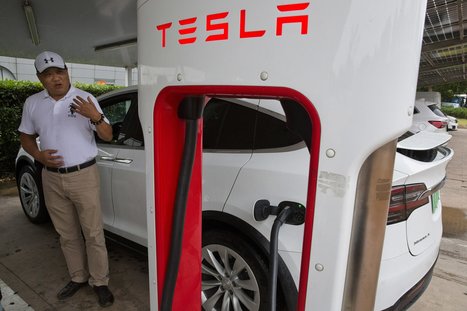[Google translated from local Donga website]
Apple invests 4 trillion won in Kia…
Promotion of a “Apple Car” cooperation agreement this month Prospects of building exclusive production facilities through investment Kia's Georgia plant targets production in 2024 100,000 units per year… Up to 400,000 units “Hyundai Glovis will take on a significant role” Hyundai Motor Group's “Apple Car (tentative name)” cooperation theory is heating up the industry with the start of the new year. Amidst various rumors and news coming out steadily, a puzzle about the cooperation of Apple Cars was put together, centering on the group's major affiliate, Kia.
As previously known, Kia takes over the Apple Car project and production takes place at the Kia Georgia plant in the United States. Both Kia and Apple are refraining from expressing their official positions, but it was confirmed that they have entered the contract process. Apple car development cooperation, which was full of rumors and speculation, is making progress.
Overall, Kia and Apple plan to sign a formal contract worth 4 trillion won for Apple car production this month. Practical coordination for a formal contract has been underway since last month, and a specific contract schedule has been set. Initially, the contract date was set at the beginning of February, but it was delayed once and the schedule was changed to February 17. However, it is reported that the contract schedule on February 17 may change depending on the internal circumstances of each company. In particular, on the day of the contract, Hyundai Motor Group Chairman Eui-sun Eui-seon said that the plan was scheduled to attend the contract ceremony. Recently, the news that Chairman Chung met a senior Apple official on a business trip to Singapore last month. The facts have not been confirmed.
The contract is expected to contain specific details related to the production of Apple cars. Apple is planning to invest 4 trillion won in Kia. With the aim of launching in 2024, the number of Apple cars produced by Kia is initially around 100,000 units per year, and can be expanded to a maximum of 400,000 units.
The 4 trillion won that Apple invests in Kia is expected to be used for building exclusive facilities for Apple car production and vehicle development. This large-scale initial investment is also a way Apple often uses in the process of driving major product production. When promoting the production of existing flagship products such as iPhone and iPad, Apple has invested trillions in LG Display (LGD) and supplied OLED panels produced in dedicated facilities. Likewise, Kia, which has attracted investment from Apple, is expected to build a dedicated line for Apple's electric vehicle production.
With Kia leading vehicle production in the Apple Car Project, attention is also being drawn to the role of Hyundai Glovis. An industry official said, "Glovis, which has several subsidiaries in the US, will play a significant role in the Apple Car business." Glovis operates 4 subsidiaries and 4 offices in the United States, including Glovis America and Georgia subsidiaries, Alabama subsidiaries, and GET subsidiary of local land transportation. In addition to logistics, which is its flagship business, the possibility of promoting electric vehicle-related businesses is predicting. According to the industry, from Apple's point of view, Hyundai Motor Group is the best partner for entering the electric vehicle market. It is analyzed that it is because it has its own electric vehicle platform (E-GMP), has a production facility in the United States, and has both the ability and requirements to actually produce new cars in accordance with the planned period (2024). The vision of the future proposed by Hyundai Motor Group, such as electric cars, hydrogen cars, and flying cars, may have been an attractive factor for Apple seeking innovation.



 Your new post is loading...
Your new post is loading...











Apple a fait l'impasse sur l'ensemble des constructeurs automobiles européens, et il serait intéressant de comprendre pour quelles raisons.
Pendant ce temps, Kia mérite de plus en plus son slogan "The Power to Surprise" !